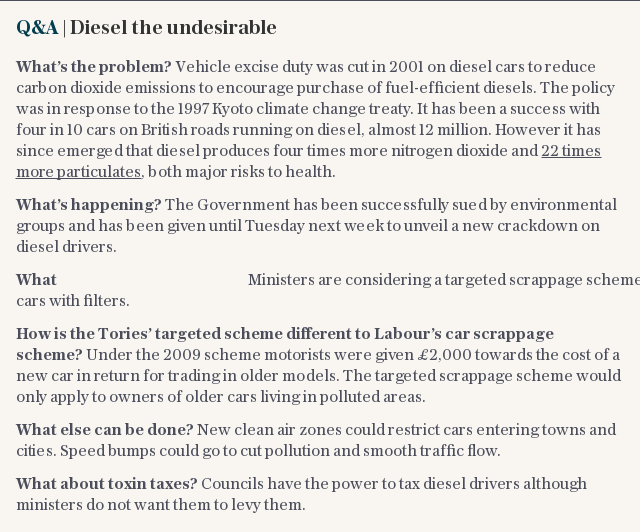Walk on inside of pavement to avoid deadly pollution, warn scientists

Pedestrians have been warned to walk on inside of the pavement after it emerged that even legal levels of pollution can damage the heart.
Even the tiniest specks of particulates from diesel cars increase the risk of heart attack, heart failure, and death, scientists at Queen Mary University of London concluded.
Particulate matter under 2.5 micrometers in diameter (PM2.5) has been linked to inflammation, the constriction of blood vessels and high blood pressure and cities must not exceed 25 micrograms per m3 or face fines.
But the researchers found that even low levels of pollution damage heart health, and advised people to take precautions to avoid congested roads.
“Walk on the part of the pavement furthest from cars to reduce the amount of pollution you breathe in,” said Clinical Fellow Dr Nay Aung, a cardiologist at the university's William Harvey Research Institute.
“Avoid times and places where there is a high level of pollution.
“If you want to cycle into work and there is heavy traffic around that time then try to find a quieter route.
“Those with cardiorespiratory diseases should limit the time spent outdoors during highly polluted periods such as rush hours.”

Researchers scanned the hearts of more than 4,000 British people and compared their postcodes to pollution data.
People who lived in the more polluted areas had the largest, and worst performing hearts, the study showed, even when accounting for other factors such as high cholesterol, obesity and smoking.
There was a steady linear increase between heart damage and pollution suggesting that even small amounts of pollution were still having an impact.
The average exposure to PM2.5 in the UK is about 10 micrograms per m3 which is less than half of the European target of under 25 micrograms per m3 yet the authors still found harmful effects.
"This suggests that the current target level is not safe and should be lowered,” said Dr Aung in findings presented at EuroCMR 2017 in Prague.

A recent study found that diesel cars are pumping out 50 per cent more toxic emissions than they should be if all were complying with pollution laws, researchers have found.
In Europe the failure to meet emissions standards could be leading to the deaths of 11,500 people every year, the new report by the University of York and the International Council on Clean Transportation.
As well as heart problems, long term exposure to pollution is linked to stroke, chronic obstructive pulmonary disease, and lung cancer.
The government is currently planning an incentive scheme to allow diesel owners to scrap their cars for cash, if they are older models and registered at an address where air pollution is already at dangerous levels.
The High Court recently ruled that the Department for the Environment must produce a plan to tackle air pollution in British cities which regularly breach safe air levels.

 Yahoo News
Yahoo News 
